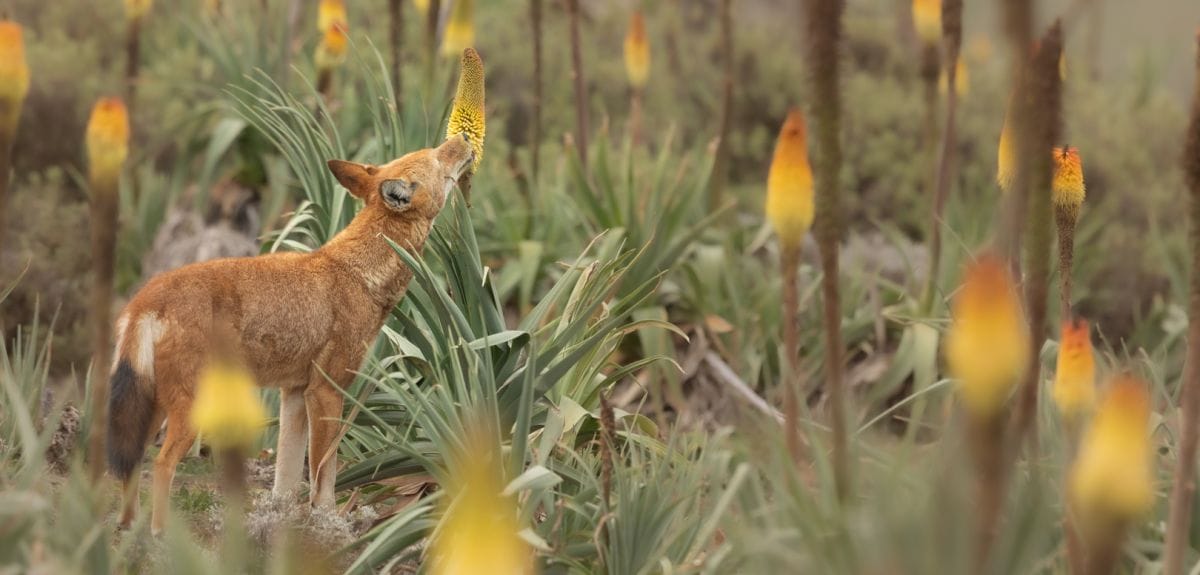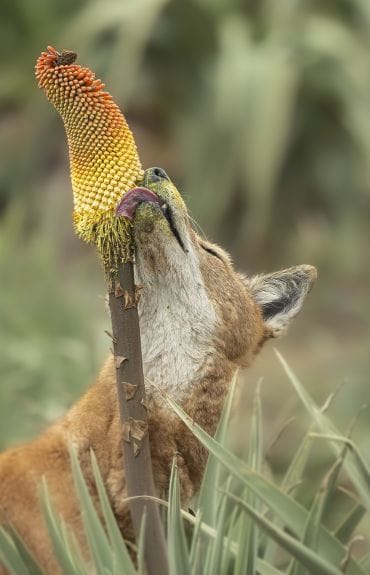Wolves Feeding on Nectar
New findings, published in the journal Ecology, describe a previously undocumented behaviour of Ethiopian wolves (Canis simensis). For the first time, these have been reported to feed on the nectar of Ethiopian red hot poker flowers (Kniphofia foliosa) – the first large carnivore species ever to be documented feeding on nectar. In doing so, the wolves may act as pollinators, perhaps the first known plant-pollinator interaction involving a large carnivore.

The study was carried out by researchers at the Ethiopian Wolf Conservation Programme (EWCP), a partnership between the Wildlife Conservation Research Unit (WildCRU) at the University of Oxford, the Ethiopian Wildlife Conservation Authority (EWCA), and Dinkenesh Ethiopia. They observed that some individual wolves would visit as many as 30 blooms in a single trip, with multiple wolves from different packs exploiting this resource. There was also some evidence of social learning, with juveniles being brought to the flower fields along with adults.
As they foraged, the wolves’ muzzles become covered in pollen, which they could potentially transfer from flower to flower as they feed. This novel behaviour is perhaps the first known plant-pollinator interaction involving a large predator, as well as the only large meat-eating predator ever to be observed feeding on nectar.
Dr Sandra Lai, EWCP Senior Scientist based at the University of Oxford, and lead author on the new study, said: “These findings highlight just how much we still have to learn about one of the world’s most-threatened carnivores. It also demonstrates the complexity of interactions between different species living on the beautiful Roof of Africa. This extremely unique and biodiverse ecosystem remains under threat from habitat loss and fragmentation.”

Professor Claudio Sillero, EWCP founder and director based at the University of Oxford, describes seeing this behaviour: “I first became aware of the nectar of the Ethiopian red hot poker when I saw children of shepherds in the Bale Mountains licking the flowers. In no time, I had a taste of it myself - the nectar was pleasantly sweet. When I later saw the wolves doing the same, I knew they were enjoying themselves, tapping into this unusual source of energy. I am chuffed that we have now reported this behaviour as being commonplace among Ethiopian wolves and explored its ecological significance.”
